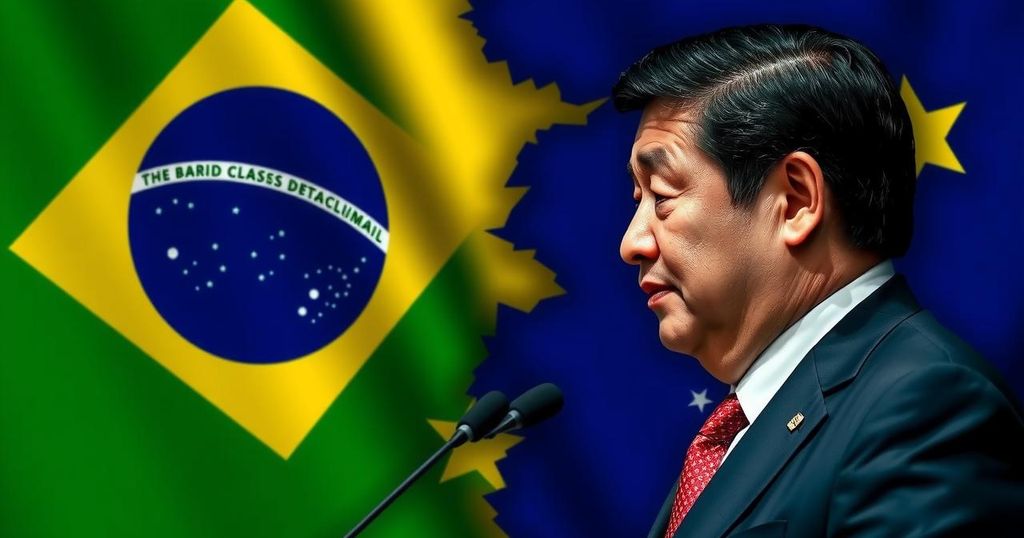Brazil’s Environment Minister Marina Silva condemned Argentina’s withdrawal from COP29 as counterproductive to global climate efforts, asserting it will not hinder negotiations for climate financing. She highlighted the ongoing discussion at the G20 Summit as a positive development. Vice President Geraldo Alckmin echoed these concerns, linking the importance of science to societal well-being and warning of possible economic repercussions for Argentina.
On Thursday, Brazil’s Environment and Climate Change Minister Marina Silva criticized the withdrawal of Argentina’s delegation from the Conference of Parties 29 (COP29) in Baku, Azerbaijan, stating that it contravenes global climate initiatives. Despite this setback, Minister Silva expressed confidence that President Javier Milei’s actions would not disrupt essential negotiations aimed at securing funding from developed nations to assist developing countries in meeting environmental commitments. Silva emphasized that every nation is adversely affected by climate change, with societal burdens escalating due to inaction, and affirmed that the climate discourse at the upcoming G20 Summit in Rio de Janeiro would be unaffected. She noted the G20’s significant progress, including debates surrounding the payment for ecosystem services and policies targeting the wealthy. Silva also remarked that while varying opinions regarding trade exist, the necessity to safeguard communities and businesses remains paramount. Additionally, Vice President Geraldo Alckmin echoed these sentiments, expressing disappointment over Milei’s stance and emphasizing the importance of scientific advancement in improving public health and well-being. Alckmin cautioned about potential negative effects on Argentina’s economic performance due to these decisions but maintained that state relations would remain stable, independent of personal biases.
The article addresses the current climate dialogue, particularly focusing on Argentina’s recent decision to withdraw from an important climate conference and its implications for international climate cooperation. The reactions from Brazilian officials reflect broader concerns about the impact of political decisions on global climate initiatives and the significance of collective action in addressing climate change. This context highlights the interconnectedness of national policies and international environmental efforts, underscoring the urgency of the climate crisis.
In conclusion, the withdrawal of Argentina’s delegation from COP29 has been criticized by Brazilian officials as detrimental to global climate efforts. Despite the challenges posed by this decision, there is optimism regarding the continuation of critical negotiations aimed at addressing climate change. The focus on cooperation, scientific progress, and the imperative to protect societal interests highlights the complex interplay between national policy decisions and the broader goal of achieving effective climate action.
Original Source: en.mercopress.com






